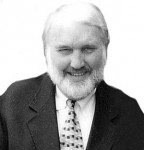The Alabama Scene
An ethical redux in the state’s judiciary
In the early 1970’s following a decades-long demise in the ethical conduct of our elected judges in Alabama, including, but not limited to the “quickie divorce” scandals of the 1960’s, Alabama voters enacted constitutional reform of the court system that included a judicial disciplinary system to monitor and discipline judges.
A two-tiered system was created. A Judicial Inquiry Commission (JIC) composed of lawyers, non-lawyers and judges was created to hear complaints against judges and file charges if necessary. A judicial body named The Court of the Judiciary was created to adjudicate any complaint filed by the JIC.
The system worked for over two decades; then came the case of Harold See, a justice on the State Supreme Court, who was charged by his opponent, Roy Moore, with making improper allegations in their political race.
Moore was chief justice of the GOP-dominated court, but a court majority changed the commission’s rules to no longer protect the identity of people filing complaints. It then enacted rules providing a judge with detailed information about a complaint, including who filed it, the evidence gathered, and the identity of people interviewed during the investigation.
That change made the Judicial Inquiry Commission’s work less like a grand jury, which operates largely in secret. The state’s highest court made the rule changes retroactive so that they applied to charges the Judicial Inquiry Commission had brought against See. Those charges accused him of running false and misleading ads against Moore in the 2000 Republican primary for chief justice, which Moore won.
The Inquiry Commission decided to drop the See case rather than disclose its sources of information about his campaign ads.
Fast-forward to 2009, when Birmingham attorney Tom Wells was president of the American Bar Association and the national group accepted an invitation from the Alabama Supreme Court to study Alabama’s disciplinary rules.
The ABA’s Standing Committee on Professional Discipline recommended that the court undo the 2001 rule changes made to protect See, including notification of the complainant and allowing evidence to be provided while the investigation is in progress. It found that revealing who filed a complaint “has a chilling effect on persons who might want to file a complaint against a judge.” Chief Justice Sue Bell Cobb was the only justice who voted for the ABA recommendation.
A return to the ethical wasteland
The severe restrictions placed by the high court on complaints about judges, as noted above, has spawned an ethical demise in the state’s judiciary. Complaints dropped significantly after the 2001 rule change that required a person’s identity to be disclosed — from 279 in 2000 to 159 in 2009.
Justices on the Supreme Court know it is against judicial ethics to communicate with parties or their lawyers who are involved in a case before them, yet more than one of the justices has communicated with Bob Riley or the lawyers representing him and his anti-gambling task force.
The Independent reported about phone calls last year from Riley or his lawyer to members of the court as it was preparing to rule on the appointment of Birmingham Circuit Judge Robert Vance to hear one of the cases involving bingo. Not only that, but for weeks Riley had been observed visiting the justices for coffee and discussion at the State Judicial Building. He failed to get a quid pro quo for his solicitations on the Vance appointment, but probably only because his actions were made public.
Then in a mysterious budget maneuver this year, Riley pulled $25 million dollars from the Highway Department Trust Fund to bail out the court’s budget for next year. It was the first time that fund had ever been “raided” other than for minor law enforcement matters. That maneuver obviously worked since the court now seems to be acting out his alter ego.
These are serious ethical breaches that should be looked at by the Judicial Inquiry Commission which doesn’t need a complaint to be filed in order to initiate an investigation. A simple check of phone records should shed some light on the Riley communications.
Then there were the revelations last week about Kenya Lavender Marshall, the uncontested Democratic nominee for a civil court judgeship in Jefferson County, and two other judges in Jefferson County who are facing disciplinary action. Marshall’s law license was suspended last week when she was accused of pilfering $30,000 from a client.
We need a way to keep judges honest and out of politics.
Bob Martin is editor & publisher of The Montgomery Independent. Email him at: bob@montgomeryindependent.com


